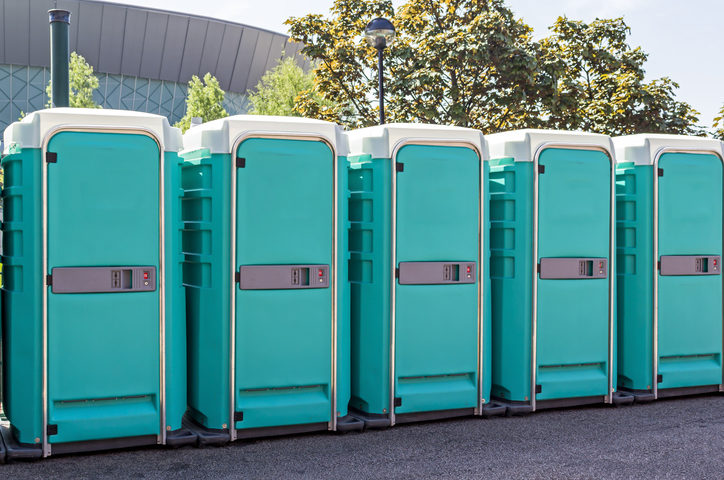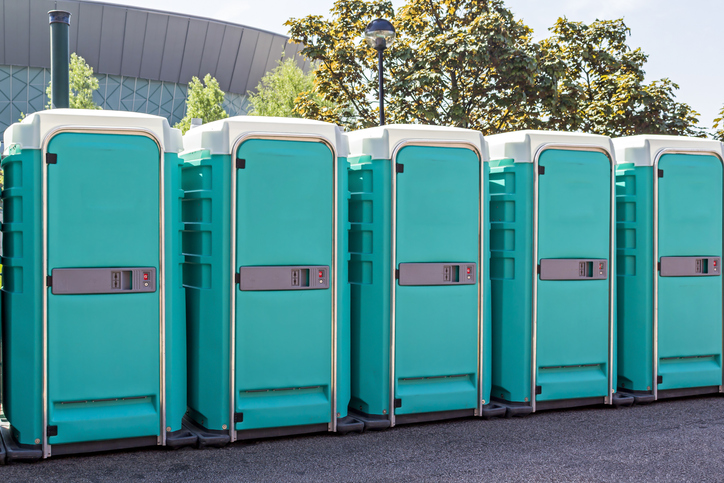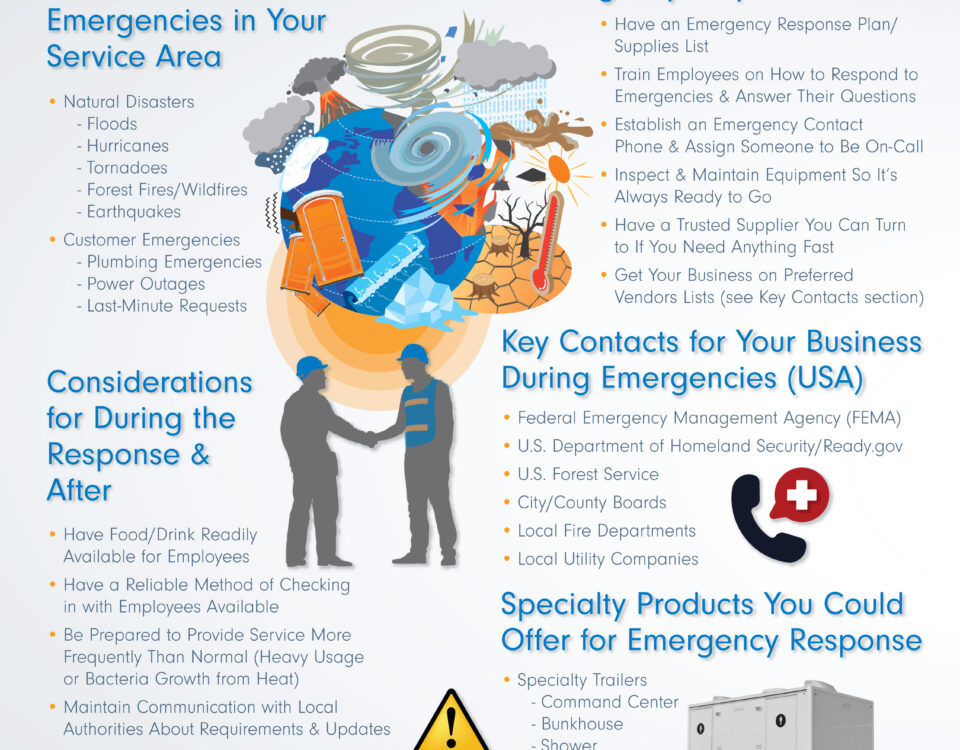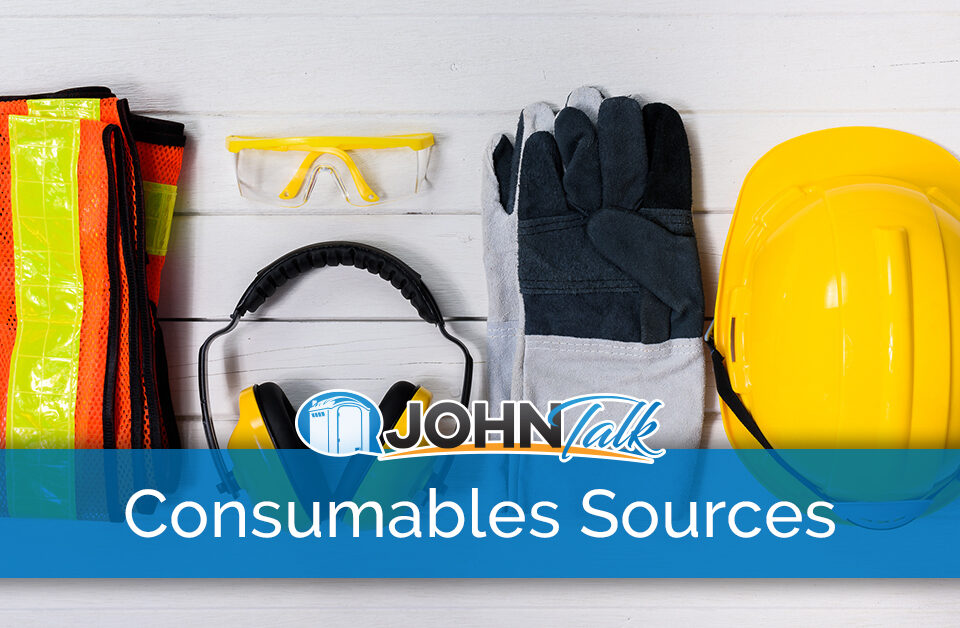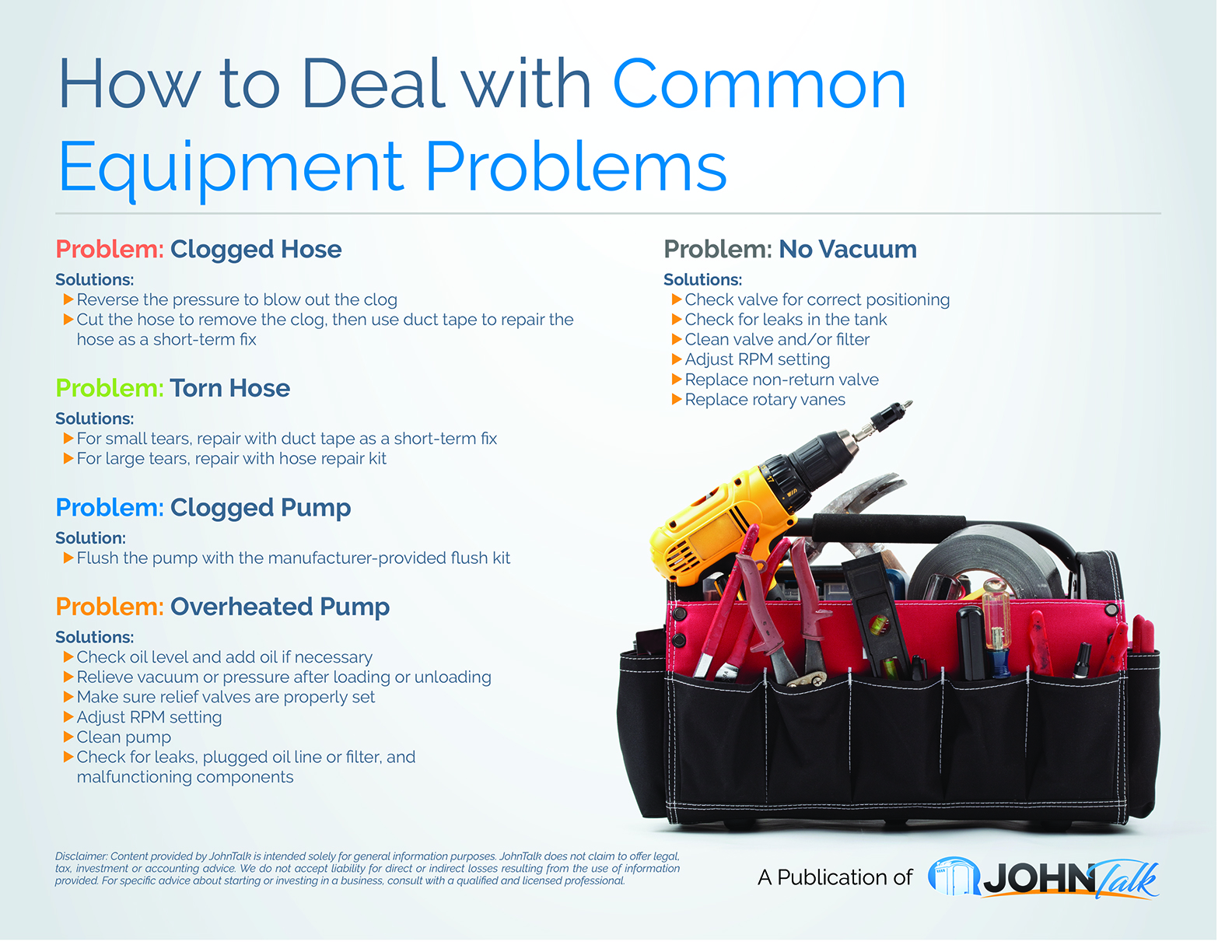
INFOGRAPHIC: How to Deal with Common Equipment Problems
July 22, 2019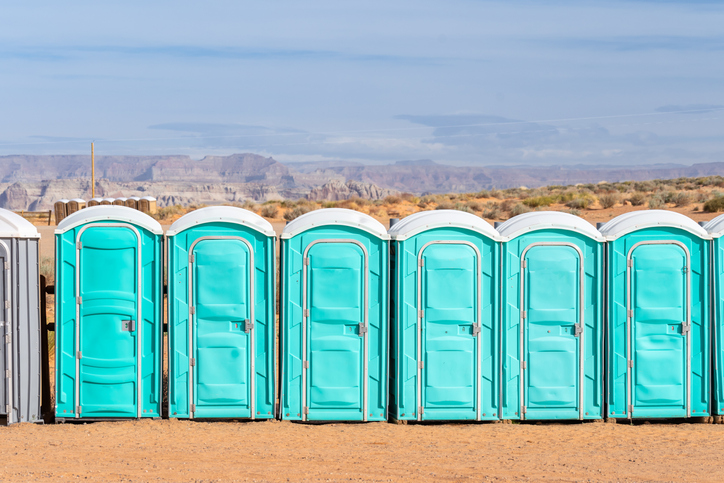
A Perfect Job for Veterans of the Armed Forces
August 5, 2019Special event season is in full swing. As you drive by the crowded festivals and concerts and see the rows of portable restrooms with other companies’ names on the doors, does it make you want to get in on the action?
Special events are fantastic income generators, and if you become a regular vendor, an event will grow in value. With hundreds or even thousands of patrons seeing your company’s name on the doors, events are also some of the best free advertising you can get!
What exactly are special events? It’s a broad category that includes concerts, music festivals, neighborhood festivals, sporting events such as softball, baseball and volleyball tournaments, 5Ks, marathons and bike races, food, wine and craft beer expos, corporate events, seminars, conferences, team-building events, tradeshows, fundraisers, retreats, and any organized, large-scale outdoor activity. They can be privately produced, run by non-profits, or sponsored by municipal, district, county or state entities.
Leads: Be on the Lookout for Opportunity
Looking for leads to special events is a year-round activity. You will do much of the legwork long before the event happens.
The key to winning special events is to be inquisitive and visible. Research. Network. Ask around. Make phone calls. Establish contact. Spread the word that you are in the market.
Check regularly on the procurement pages of municipal, county and state websites for bids to provide portable sanitation services.
When an event requires or employs a bidding process for services, the bids will go out months before the event is scheduled. Even if there is no formal bidding process, organizers are often already at work on the next year’s event as soon as the current one is over.
Maximize
your business-to-business networking opportunities. Establish relationships in
your area Chamber of Commerce and other civic organizations so you can hear
about upcoming special events. It’s a great opportunity to get in on the ground
floor for new events. If you’ve never tackled a special event before, put out
the word among your colleagues that you are ready to try, and
would like an opportunity to show what you can do.
Research and keep track of events in your service area by reading the local newspapers, listening to local radio stations (pay attention to the ads) and following social media sites, especially those dedicated to the local scene, such as Nextdoor.
Finally, keep your eyes open. If you’ve lived in your community for almost any length of time, you become familiar with the events that regularly occur throughout your service area. You see them every year like clockwork. It might be the local Jaycees’ Flag Day event or the big Fourth of July fireworks show your city holds or a local hospital’s annual 5K fundraiser. As you travel throughout your service area, any event you see with portable restrooms is an opportunity.
This time of year when events are so plentiful, you will see a lot of them already underway. Take advantage of the situation to find out more information about the event for the next time it’s held. If possible, visit the event and introduce yourself to the person in charge or the event coordinator. Make use of those business cards!
Bidding Special Events: Calculate Your Costs
The more information you have, the better you will be able to prepare your bid on portable sanitation services for a special event. Once you have all the details, bidding is mostly crunching the numbers.
A formal Invitation to Bid (ITB) will spell out all the information you will need to very precisely calculate your costs, such as the number of units, type of units especially when ADA-compliant units are needed), number of sinks, hand sanitizers and other accessories, supplies, the number of days the units will be in use, and service requirements including details such as locking toilet paper rolls, containment trays, etc. A bid may even include particulars such as acceptable colors of units.
With this information in hand, you can add in your other cost factors, such as mileage and fuel, setup and breakdown time, dumping fees, supplies, and employee man-hours if it the event demands more than your own labor. Then, add your markup.
If you are bidding on a special event that has a less formal process, gathering as much information as possible is even more important. There may be details the event planners didn’t think of because they don’t have the same experience in portable sanitation that you do. In addition to the basics such as number of units, ADA units, hours of operation each day, etc., you can prepare a checklist of other questions in case they aren’t initially covered, including:
- Crowd estimates – Are they underestimating the number of units needed?
- Will alcohol be sold? – More units may be needed.
- Will the units be used at night? – Lighting may be needed.
- Will there be reserved sections? – Luxury units and trailers offer a more upscale experience.
Asking
questions is a great start to establishing a line of communication with the
event organizers, and will also demonstrate to them
that you are knowledgeable and well-prepared. They are more likely to have
confidence in your capability to deliver.
Get the JohnTalk “ALL-ACCESS PASS” & become a member for FREE!
Benefits Include: Subscription to JohnTalk Digital & Print Newsletters • JohnTalk Vault In-Depth Content • Full Access to the JohnTalk Classifieds & Ask a PRO Forum
Closing the Deal
What else can you do to improve your chances of success in the bidding process for a special event?
When it comes to an Invitation to Bid, your response that is thorough and detailed provides exactly the required information, demonstrates that you can capably fulfill the portable sanitation service needs of the event, and is submitted in a timely manner is the best possible effort you can give.
For special events in which the bid process is more flexible, you may have additional options you can take advantage of.
Consider offering volume pricing if you don’t already offer it as part of your pricing strategy. Volume pricing is a financial incentive in which you offer a reduced price for renting a certain number of units. A discount of 10% or so off the total can pay off in the long run. Since you are bringing multiple units to one site, you can make more money with less overall work. Your competitors on the bid are almost certainly offering volume pricing.
Discounts or special incentives can take other forms, such as free hand sanitizers with every unit. Use your imagination!
Some PROs simply lower their prices in order to earn their first special event. But price cuts will take you only so far. Remember, your prices are your prices for a reason. It’s how your business will become profitable.
If you operate at a loss just to get the business, it may be harder to get profitable repeat business without damaging the relationship you’ve established. Rather, make an honest bid, and close the deal by selling the special event customer on the expectation of your excellent service. Always emphasize service.
Seasoned PROs will tell you that it’s the relationship and the service that closes the deal. This means giving the customer confidence that you have the capability to do the job, then proving it with your performance.
Staffing: You and Someone You Know
As a first-timer to the special event scene, you are most likely a one-person shop. Being well-prepared and well-organized is essential. And it may take more than that.
The biggest challenge you face as a solo act is the increased work. In addition to your usual weekday routes, you will be delivering, cleaning and taking down units from Friday through Monday. As you increase the special event component of your business, you may reach the point where you have several one-day and multi-day events scheduled weekend after weekend after weekend.
By the time you have a few special events under your belt, you may have hired or are considering hiring a full- or part-time employee. A driver experienced with special events is a valuable asset, enabling you to more easily work multiple events over the same weekend and throughout your busy season.
You and your employee can do events together until you are ready to delegate full responsibility. If you do your job well, your route driver already has most of the training in portable sanitation service that he or she needs to handle special events.
Review all the preparations you have made for the specific venue. Obviously, safety should be emphasized (as it always should be). You may want to impress upon your driver the added importance of proper behavior. Public events put your company in the public spotlight. When everyone sees you at your best, from the event coordinator and event staff to the other vendors and the hundreds or thousands of attendees, you’ve boosted your odds of being invited back. Keep in mind:
- Be patient – Many types of vendors are likely to be setting up at the same time you are. Keep a level head and you’ll get your turn.
- Be polite – Conduct yourself professionally. Don’t shout, swear or “act out” in anger.
- Avoid distractions – You’re not there to get autographs from the band or check out the handmade crafts. Keep it professional and stay on your schedule.
- Represent the company – You may get the usual questions about portable sanitation from attendees, other vendors or staff. Let them know that portable sanitation contributes to the success of every event.
Hiring an
employee is a major commitment, and it takes time to do it right. If you are
being stretched thin servicing events by yourself, and you
are still several steps away from hiring, a more immediate solution is to use
the services of a subcontractor to carry part of the load. Another portable
sanitation company in your service area may be exactly what you need to fill
the gap.
Many companies are able to maintain a working relationship with their competitors. They know the portable sanitation business and they know the service area.
Have you met your competitors? If not, get to know them and their business. Are their units always in good shape and well-maintained? What do their customers say about them? Check out their websites. What kind of reviews do they get on social media? Are they members in good standing with business organizations such as the Chamber of Commerce? Do they share the same dedication and enthusiasm for portable sanitation as you?
Have you helped another company before? Are they willing to reciprocate?
When your competitors are willing to subcontract, it’s not an informal process. Negotiate a cost of services so you can add the numbers to your calculations when preparing your bids. Determine who will be responsible for what if problems arise. Don’t rely on a handshake. Prepare a subcontractor contract to safeguard your collaboration.
Routing and Scheduling
In the days and hours before a big event, there can be a maze of challenges to hinder your ability to set up. Good planning can help you negotiate them.
Your game plan starts in the time leading up to the event by staying in touch with the event coordinator or the person who will be in charge and on-site during setup. Get the information you need to answer these questions and any others that will be relevant to your particular situation:
- Where are the units to be located? – Event planning is often fluid, so keep checking until the location is finalized. Meet with the coordinator on-site a few days early to do a “walk-through.”
- Is the site large enough for the units? – Measure the space allocated for your units.
- What time do the units have to be in place? – See if you can set up the units the day before and lock them until the event. Otherwise, the early morning hours before the event tend to be very busy with other services and equipment being set up.
- What streets will be closed? – Essential to planning the most time-efficient route in and out of the event.
- What other restrictions will be in place that could affect set up? – What’s in your way and how do you get around it? For example, will you be setting up any units in a reserved area that will be blocked by fencing or pedestrian barriers? How will the placement of stages, lighting equipment, generators, booths, etc. affect set up? Are there areas that a truck wouldn’t be allowed to cross, such as landscaped areas or sidewalks, that would block your delivery? These are details that may not be apparent to an event coordinator.
- Is security clearance required? – Determine your security needs for yourself, your employees, or for another company that is helping to set up your units. Clarify how to display your clearance.
- Who from the event will be on-site during set up and takedown? – Get the phone numbers of the on-site coordinator and event coordinator.
- If the event runs more than one day, establish how to gain access to the site in the morning – For multi-day events, it’s best to schedule your unit cleanings in the mornings before the event reopens.
In anticipation of working a special event, you may want to adjust your routes so you have more time on Fridays and Mondays for prep and takedown.
Looking to Take Your Portable Restroom Business to the NEXT LEVEL? Download our FREE Guide: “Your Guide to Operating A Portable Restroom Business.”
Thinking About GETTING INTO the Portable Restroom Industry? Download our FREE Guide: “Your Guide to Starting A Portable Restroom Business.”


